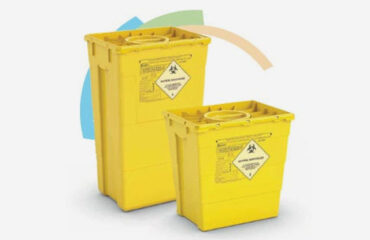Some Known Details About Reclaim Waste
Some Known Details About Reclaim Waste
Blog Article
The Only Guide for Reclaim Waste
Table of ContentsThe Best Guide To Reclaim WasteA Biased View of Reclaim WasteThe Facts About Reclaim Waste RevealedThe Of Reclaim WasteSome Ideas on Reclaim Waste You Need To Know
Check out the types, incidents, and forms of fluid waste. Residential sewer waste describes the waste and products from a domestic septic tank. This kind of waste is created by humans in houses, colleges, and various other structures. This only includes sewage-disposal tanks that have a drainpipe field. The appropriate administration and disposal of domestic sewer waste call for liquid waste to be moved to a sewage treatment plant where the appropriate approaches and equipment are used to purify and take care of waste.
Business waste often includes prospective hazards, such as combustible materials or a blend of fluid and strong waste products, and requires an advanced and thorough disposal procedure. The disposal of business waste typically includes the filtration of waste prior to transportation to make sure risk-free and correct disposal. Industrial waste is produced from byproducts and drainage of commercial procedures and manufacturing.
This kind of waste can not utilize the exact same sewage management transport or processes as septic or commercial fluids. The industrial waste monitoring process needs the inspection and screening of fluid waste before it goes through the disposal procedure (liquid waste disposal melbourne). Overflow waste is the liquid waste that originates from drainage and excess stormwater in extremely populated areas or cities
Overflow waste can create contamination and flooding if not taken care of properly. Making certain proper waste management can stop calamities and reduce ecological damage.
The smart Trick of Reclaim Waste That Nobody is Talking About
Get in touch with PROS Providers today to discover our waste management and disposal solutions and the correct ways to take care of the fluid waste you create.
(https://moz.com/community/q/user/reclaimwaste1)Do you understand what takes place to your water when you disengage, flush the commode or drain the washing device? No? Well, it's worth understanding. This so-called 'wastewater' is not just a vital source yet, after treatment, will certainly be launched to our land, waterways or the ocean. Made use of water from bathrooms, showers, baths, cooking area sinks, washings and industrial processes is referred to as wastewater.

water made use of to cool machinery or tidy plant and equipment). Stormwater, a type of wastewater, is runoff that streams from farming and city locations such as roofing systems, parks, gardens, roads, courses and rain gutters right into stormwater drains, after rainfall. Stormwater streams unattended directly to neighborhood creeks or rivers, at some point reaching the sea.
The smart Trick of Reclaim Waste That Nobody is Discussing
In Queensland, many wastewater is treated at sewage treatment plants. Wastewater is transferred from residential or industrial sites through a system of sewers and pump stations, known as sewerage reticulation, to a sewer treatment plant.
The Division of Natural Resources advises regional governments concerning managing, operating and maintaining sewerage systems and therapy plants. In unsewered areas, regional federal governments might call for homeowners to install individual or household sewage treatment systems to treat domestic wastewater from toilets, kitchen areas, bathrooms and washings. The Department of Natural Resources authorizes making use of household systems when they are confirmed to be effective.
In some brand-new class, therapy of some stormwater to eliminate clutter, sand and see this here gravel has actually started using gross pollutant catches. Wastewater therapy happens in four stages: Eliminates strong matter.
Utilizes little living microorganisms recognizes as micro-organisms to damage down and eliminate staying liquified wastes and great bits. Micro-organisms and wastes are included in the sludge.
The Best Strategy To Use For Reclaim Waste
Nutrient elimination is not readily available in any way sewage therapy plants since it calls for pricey specialized devices. It is coming to be extra typical in Queensland. Clear fluid effluent generated after therapy might still include disease-causing micro-organisms. If this effluent is launched into waterways such as rivers or the sea, the micro-organisms will at some point pass away out.

This normally indicates wastewater needs to be treated or pollutants removed before it can be released to rivers. The majority of wastewater streams into the sewage system. Under the Act, regional governments carry out authorizations and licences for eco relevant activities (ERAs) involving wastewater launches that may have a neighborhood effect. The division provides approvals and licences to ERAs entailing wastewater releases that might have a local or statewide effect.
The 2-Minute Rule for Reclaim Waste
Monitoring supplies accurate info regarding water top quality and can verify that permit problems are being satisfied. The info acquired via monitoring supplies the basis for making water top quality decisions.
Report this page